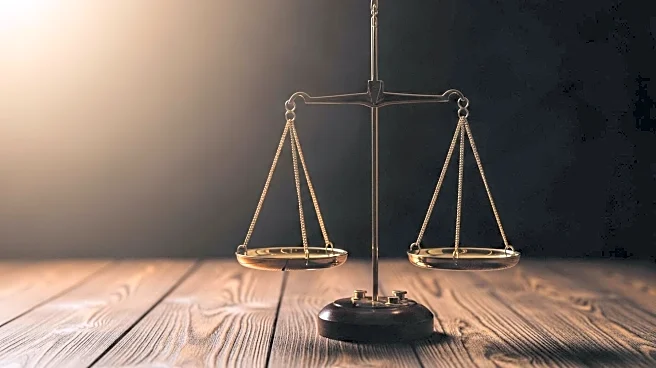What's Happening?
Justice Anthony Kennedy, who served on the Supreme Court for 30 years, has released a memoir detailing his experiences and decisions during his tenure. The book explores his views on significant issues
such as abortion and capital punishment. Kennedy, a devout Catholic, initially found abortion morally troubling but ultimately upheld the constitutional right to abortion, emphasizing the importance of personal liberty. His decision was influenced by the need to balance personal beliefs with constitutional interpretation. Kennedy also revisited his stance on capital punishment for juveniles, acknowledging a change in perspective due to new research on juvenile brain development and international norms. His memoir highlights the importance of self-reflection and evolving judicial perspectives.
Why It's Important?
Kennedy's memoir provides insight into the judicial decision-making process and the complexities involved in balancing personal beliefs with constitutional mandates. His reflections on abortion and capital punishment underscore the evolving nature of legal interpretations and the impact of societal changes on judicial perspectives. The book offers a rare glimpse into the thought processes of a Supreme Court Justice, potentially influencing public discourse on these contentious issues. Kennedy's acknowledgment of changing views highlights the dynamic nature of law and its adaptation to new information and societal values, which is crucial for legal scholars, policymakers, and the public.
What's Next?
Kennedy's memoir may spark renewed discussions on the role of personal beliefs in judicial decisions and the importance of adapting legal interpretations to reflect societal changes. Legal scholars and policymakers might use his reflections to examine current judicial practices and consider reforms that ensure a balance between personal liberty and moral considerations. The book could also influence future debates on abortion rights and capital punishment, encouraging a broader examination of these issues in light of Kennedy's experiences and insights.
Beyond the Headlines
Kennedy's memoir raises ethical questions about the influence of personal beliefs on judicial decisions and the responsibility of judges to remain impartial. It also highlights the cultural and legal shifts that have occurred over the decades, reflecting broader societal changes. The book may contribute to ongoing discussions about the role of the judiciary in shaping public policy and the importance of judicial independence in maintaining democratic principles.









